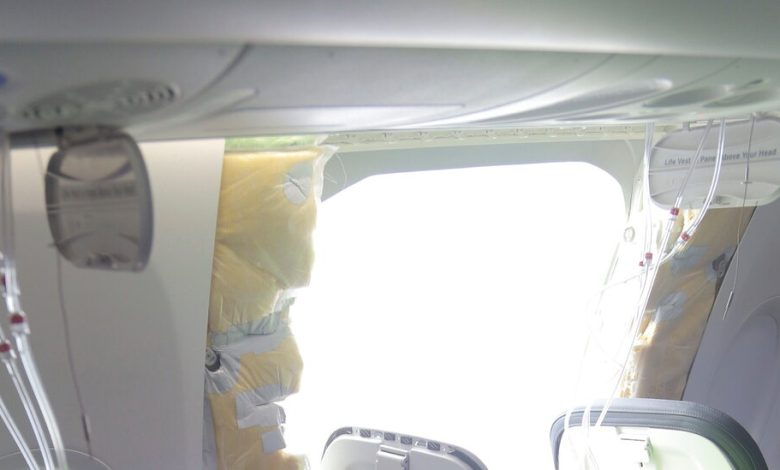Fixing the Quality Problems at Boeing

More from our inbox:
- Arizona’s Abortion Ban: ‘What Century Are We Living In?’
- Don’t Cancel Student Loans
- Why Leave ‘Nice’ Countries?
- ‘Pro-Humanity’ Protesters
- Caring About Fish Benefits Us

Credit…National Transportation Safety Board, via Associated Press
To the Editor:
Re “‘Shortcuts’ Paint a Picture of Boeing Ceding Quality” (front page, March 31):
The sad story of Boeing unfortunately seems to be a metaphor for this country. We have quality issues all over our infrastructure; we have world-class institutions struggling to maintain standards; we have political brands that are being devalued because of extreme positions by some leaders.
Boeing — before being taken over by management brought in through the McDonnell Douglas acquisition in 1997 — was by far the best plane maker in the world. But new management in the post-merger period stressed return on investment and profitability rather than engineering and quality, and the company’s culture shifted over time.
Charles H. Gessner
Marblehead, Mass.
The writer was an in-house consultant for Swissair.
To the Editor:
Re “Boeing Chief to Resign in a Major Reshuffle” (Business, March 26):
Boeing’s latest leadership overhaul will achieve the necessary results only if the company does the hard work of changing its culture as well.
For years, Boeing has been plagued by a culture that has been described as “broken,” “sick” and filled with “secrecy and intimidation.” Employees were notoriously afraid to speak out about problems they saw internally.
A Harvard Business School professor, Amy Edmondson, once called Boeing “a textbook case of how the absence of psychological safety — the assurance that one can speak up, offer ideas, point out problems, or deliver bad news without fear of retribution — can lead to disastrous results.”
Fixing problems in any company requires a culture of openness and information sharing. It means prioritizing curiosity over blame. Employees need to feel free to point out any problems they see and to admit mistakes without fear that a single error will spell the end of their careers.





